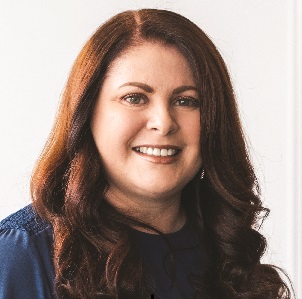Super Gonorrhoea Exposed on Social Media
07 Nov 2018

Every so often we come across a cautionary tale which demonstrates how far reaching social media can be, and how even the best consent process can fall at the last hurdle.
Case study
A young man presented to ED with severe burning during urination and penile discharge. He advised the ED registrar that he had recently returned from South East Asia, and was worried he had picked up a sexually transmitted infection after having unprotected sex. His symptoms were getting worse, and he was running out of excuses with his fiancé – who was unaware of the unwanted souvenir he had brought back from his holiday.
The ED registrar suspected ‘super gonorrhoea’ after reading about a recent case in the UK, so he called in the infectious disease team. The diagnosis of multi-drug resistant gonorrhoea was later confirmed and alternative antibiotic treatment eventually cured the patient. The registrar asked the patient if he could write up the case for a medical journal. The patient, feeling grateful and relieved, signed an authority for the registrar to publish the case on the proviso he wasn’t identifiable.
The registrar wrote an article with some of the infectious disease doctors, and was really pleased when the paper was published in a well-respected medical journal eight months later. The patient signed an additional authority at the request of the medical journal, and also gave consent for the registrar to be interviewed by a media outlet who showed interest in the story – as long as he (the patient) remained anonymous.
The registrar gave the interview. Although he referred to the patient as a backpacker, he felt he had protected the patient’s anonymity and hadn’t released any information that would identify him. The media outlet promoted the upcoming interview on their Facebook and Instagram pages.
The patient had of course told his mates that he had super gonorrhoea, which they all thought was hilarious. So when the media outlet publicised the interview with the tagline, “Young Aussie goes backpacking in South East Asia and returns with super gonorrhoea”, his mates couldn’t resist and started tagging him in the comments on Facebook.

By the time he became aware of the comments, his fiancé had seen the posts. She put two and two together, and gave “Johnno” his marching orders. The patient’s workmates saw the posts, as did members of his immediate family.
The patient contacted the registrar saying, “You told me I would be anonymous – this article has ruined my life. Everyone knows it was me!” The registrar was understandably shocked, never having intended for the patient’s identity to become public. The registrar apologised and contacted the media outlet who agreed to remove both the interview and the promo – but it was too late, the damage had been done.
Conclusion
In this case, it was the patient’s friends who effectively ‘outed’ him – not the registrar. But the registrar felt terrible nonetheless and quickly realised that in the age of social media, information can take on a life of its own.
Anonymity cannot always be guaranteed, because if a third party holds information disclosed by the patient, the de-identified information may be enough to complete the whole picture and disclose the patient’s identity.
Nerissa Ferrie
Medico-legal Adviser, MDA National

See Dr Nikki Stamp's article: Social Media – Not Just a Social Platform.

Doctors Let's Talk: Get Yourself A Fricking GP
Get yourself a fricking GP stat! is a conversation with Dr Lam, 2019 RACGP National General Practitioner of the Year, rural GP and GP Anesthetics trainee, that explores the importance of finding your own GP as a Junior Doctor.
25 Oct 2022
Systematic efforts to reduce harms due to prescribed opioids – webinar recording
Efforts are underway across the healthcare system to reduce harms caused by pharmaceutical opioids. This 43-min recording of a live webinar, delivered 11 March 2021, is an opportunity for prescribers to check, and potentially improve, their contribution to these endeavours. Hear from an expert panel about recent opioid reforms by the Therapeutic Goods Administration and changes to the Pharmaceutical Benefits Scheme.
14 May 2021
Diplomacy in a hierarchy: tips for approaching a difficult conversation
Have you found yourself wondering how to broach a tough topic of conversation? It can be challenging to effectively navigate a disagreement with a co-worker, especially if they're 'above' you; however, it's vital for positive team dynamics and safe patient care. In this recording of a live webinar you'll have the opportunity to learn from colleagues' experiences around difficult discussions and hear from a diverse panel moderated by Dr Kiely Kim (medico-legal adviser and general practitioner). Recorded live on 2 September 2020.
05 Oct 2020








